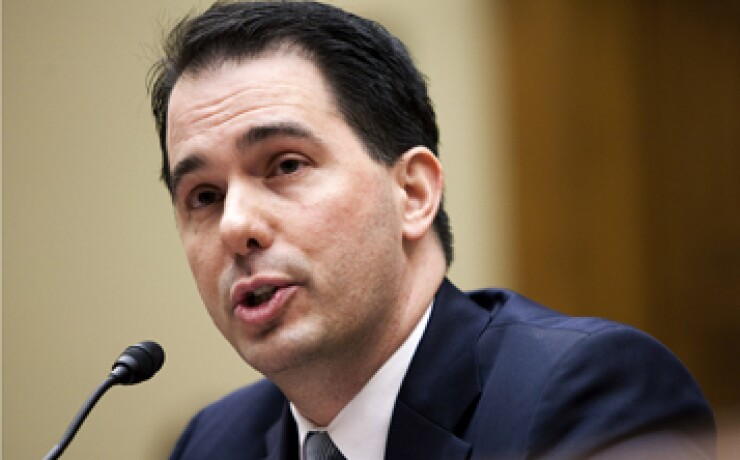
CHICAGO — The Wisconsin Supreme Court has upheld Gov. Scott Walker's controversial law that curbed most collective bargaining rights for public employees.
The 5-2 decision came Thursday from the divided court. Walker and the Republican leadership of the Legislature pushed through the law in 2011 as part of a larger budget repair bill that helped eliminate a budget gap.
The measure prompted large protests at the state capitol and Democratic senators briefly fled the state in an attempt to stall passage. The law's passage prompted a recall election in which Walker prevailed. Some lawmakers also faced recall elections over their vote.
The law known as Act 10 barred automatic withdrawals from members' pay, required annual elections, and required employees to contribute more for healthcare and pensions. Walker touted the law's savings not only on state coffers but also on local government budgets which simultaneously faced cuts in their share of state funding.
A union that represents Milwaukee's public workers and the Madison teachers union filed the lawsuit decided by the court Thursday, arguing the law violated constitutional protections to free assembly and equal protection.
The court in the majority decision found that public employees' collective bargaining over contract terms is not protected by the state constitution but instead a benefit that falls under legislative purview. Employees retain the right to form unions.
"No matter the limitations or 'burdens' a legislative enactment places on the collective bargaining process, collective bargaining remains a creation of legislative grace and not constitutional obligation," the decision reads. "The plaintiffs remain free to advance any position, on any topic, either individually or in concert, through any channels that are open to the public."
Walker, who faces re-election, said in a statement: "Act 10 has saved Wisconsin taxpayers more than $3 billion. Today's ruling is a victory for those hardworking taxpayers."
Unions and others impacted by the law filed a series of state and federal lawsuits challenging the rules. They saw some success in rulings at lower court levels but on appeal the law has been upheld. The state Supreme Court's Thursday ruling is its first in the case. Only one remaining lawsuit is now still pending at the state level.
The litigation decided Thursday originated in Dane County Circuit Court where the judge declared pieces of the law unconstitutional, finding the law unduly burdened workers' rights to free speech and free association. The Wisconsin Supreme Court directly took up the case last year and heard arguments in November.





